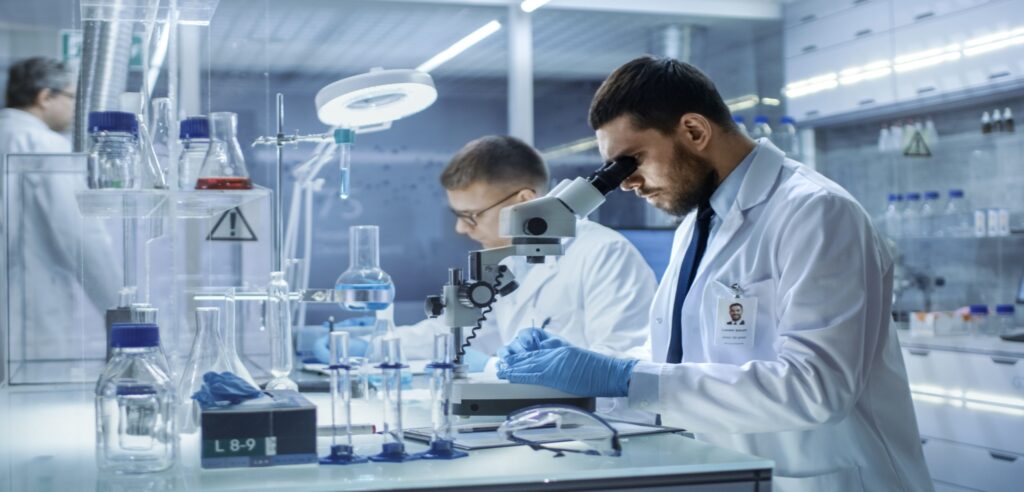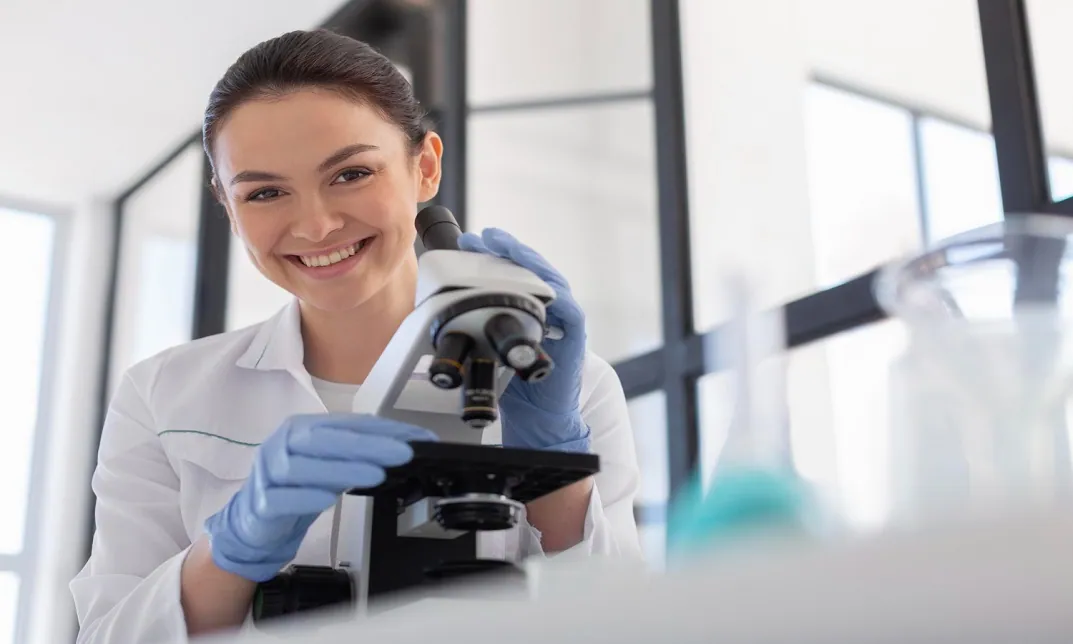A Lab Technician supports scientists and medical professionals. Moreover, they’re responsible for various laboratory tasks that follow strict guidelines. They also protect the accuracy and efficiency of experiments while keeping labs organised. In this blog, we’ll cover all the steps required to become a lab technician.
Table of contents
What is a Lab Technician?
Lab technicians play a crucial role in various industries, including healthcare and scientific research. Moreover, they are responsible for performing tests, experiments, and analyses that contribute to important discoveries and advancements.
Working under supervision, lab technicians follow strict protocols to ensure the accuracy and reliability of their findings. As a result, their meticulous work in laboratories helps in diagnosing diseases, developing treatments, and advancing scientific knowledge.

Lab Technician Roles and Duties
A lab technician is a professional trained to perform various laboratory work. Mostly, they work under the direct supervision of technologists or laboratory managers. Their duties may involve the following:
- Sample preparation and analysis
- Data recording and analysis
- Testing procedures
- Supporting Scientific Investigations
- Staying current with advancements
- Maintaining laboratory equipment
- Prioritise safety and organisation
- Discussing and answering any questions regarding the results
- Maintaining equipment records and daily work logs
Skills Required to Become a Lab Technician
To become a technician, you will need a combination of education, training, and certain skills. This can be confusing or overwhelming. So, here is a step-by-step guide on how to become a lab technician:
- The ability to communicate effectively, both verbally and in writing
- Attention to detail is necessary for a lab technician in order to provide accurate results
- Technical skills are required to operate laboratory equipment and conduct tests
- Problem-solving skills are important for a technician to solve any kind of laboratory obstacle
- Science knowledge is needed for a lab technician to contribute more to scientific research
- Teamwork skills are significant in order to work as a part of a team and share knowledge with colleagues
Educational Requirements of a Lab Technician
Becoming a lab technician typically requires a minimum of an associate degree in medical laboratory technology or a related field. Moreover, there are some other things needed, such as:
- High School Diploma/GED: Graduating from school is the basic requirement for most technical jobs. So, you will need to either complete high school or earn an equal qualification such as a GED or an ALEVEL. It shows you have the basic skills to complete basic arithmetics and technical tasks.
- Associate’s Degree:Many employers prefer a 2-year Associate’s degree in Medical Lab Technology or a science field like Biology. These programs teach you the essential lab skills and knowledge you need to get started.
- Certification: Having certification in any degree or course shows that you are knowledgeable in this field. As a result, you significantly increase your chances of finding a job. Depending on where you live, having certification might be a requirement to become a certified lab technician.
- Bachelor’s Degree:A 4-year Bachelor’s degree in science can open doors to even higher-paying lab jobs and research opportunities. Although it is not necessarily needed.
Online Courses:
Online Courses are a convenient and flexible way of building your lab technician skills. Moreover, having certification in these courses can greatly help with your resume.
In fact, Unified Course offers many easy-to-learn and effective courses for lab technicians! You can enrol with us and start your career easily.
Some topics you might learn in these courses include:
- Laboratory Safety
- Medical Terminology
- Laboratory Technology
- Quality Control
- Instrumentation
- Biochemistry
- Microbiology
- Haematology
- Immunology
- Clinical Chemistry
- Molecular Biology
- Data Analysis
- Ethics and Professionalism
Lab Technician Positions
The role of a lab technician is not usually general. There are various fields where technicians can specialise. These fields vary greatly from one another in their unique way. A few of these specialisations are:
- Medical Laboratory Technicians: Analyse blood, tissue, and fluids in hospitals and clinics to diagnose and monitor diseases. Moreover, they help doctors with general research and information management.
- Chemical Technicians: Assist in chemical research and development, conducting experiments, analysing chemicals, and ensuring quality control in manufacturing.
- Microbiology Technicians: They cultivate and analyse microorganisms like bacteria and fungi. Thus, they play a vital role in research, food safety, and disease control.
- Environmental Technicians: Monitor environmental quality by testing air, water, and soil samples. As a result, they ensure compliance with environmental regulations.
Is a Career as a Lab Technician Right For You?
Do you love science and have a sharp eye for detail? If so, this might just be the career for you! Lab technicians play a vital role in scientific progress and contribute greatly to society. Moreover, if you enjoy solving problems and working with a team, this career path might be a good fit. If you’re interested, you can get started by enrolling in one of our courses and becoming a subject expert! Following this, you can research different lab technician specialities and apply the one that is perfect for you!




